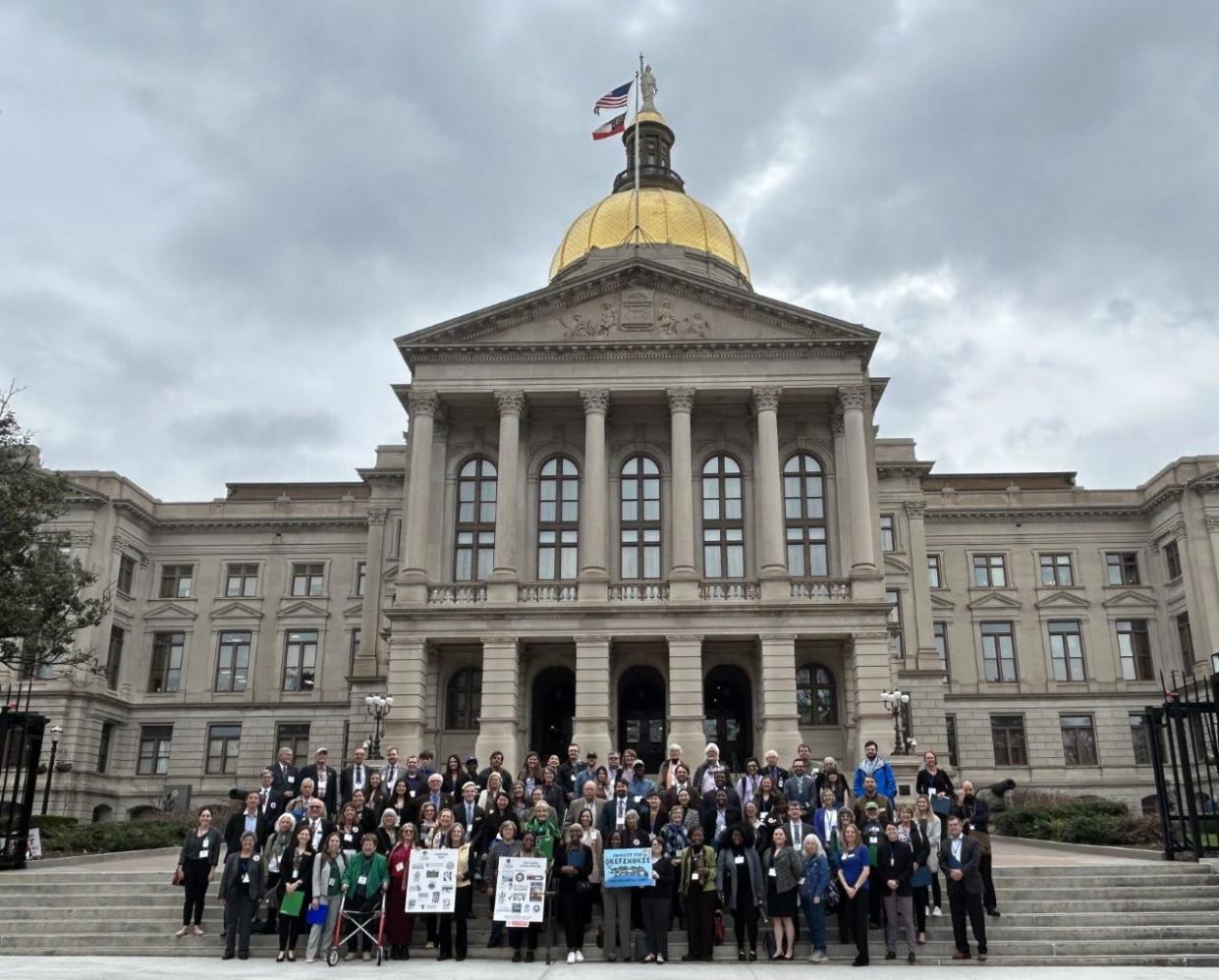See which environmental bills in the Georgia General Assembly won't become law

During this legislative session, Georgia lawmakers duked it out environmental policies. This week, after Crossover Day, bills died, were relegated to lay dormant until next year, or continued their journeys toward becoming law.
Lawmakers are shaping up their policies, prioritizing what environmental and natural resource issues they will continue to prioritize in making laws in the coming year.
Whether it's focusing on Georgia's bustling electric vehicle economy or looking at controversial soil additives, here's what bills swam or sunk so far at the capitol:
Green technology and electric vehicles in the Georgia economy
House Bill 307: This house bill aimed to bar Georgia Power from charging ratepayers to pay for expanding its electric vehicle charging infrastructure and to incentivize private sector investment in that infrastructure. It did not get a vote and will not progress to the Senate.
House Bill 406: Now read by the Senate and referred to its respective committee, House Bill 406 successfully crossed over. Another bill working to shape up laws on electric vehicles and charging station infrastructure, this bill proposes standardization of EV chargers to make them more in line with how gas stations are regulated and allows retailers to charge EV drivers for electricity by the kilowatt hour rather than based on the length of time the vehicle is connected to the charging station.
Senate Bill 72: This bill started in the senate and stayed there. The "Baranco Act" would have barred anyone from obstructing electric vehicle charging spaces and imposed a fine of $100 or more for doing so, but it did not make it out of committee.
More on Georgia' EV growth: Interest sparked? How Georgians are gearing up to adopt EVs ahead of Hyundai plant opening
House Bill 73: Another successful bill, HB 73 crossed over to the Senate. Hoping to curtail scam-like solar installation companies, this consumer protection bill would have the Georgia Public Service Commission certify solar installer companies. Under this bill, the companies would be background checked by the PSC and turn their financials over to the commission, disclose payment terms to customers and give the PSC latitude to set other regulations or requirements for the companies.
Senate Bill 210: The Georgia Homegrown Solar Act of 2023 did not cross over this year. The bill looked to address how Georgia Power compensates residential solar customers for the electricity they put onto the grid from their solar panels. It would increase the number of people who would be credited at retail rates for the electricity they put onto the grid under the "net metering" billing program, a program that the Public Service Commission denied expanding during rate case hearings last fall.
Natural resources and the outdoors
House Bill 71: Despite garnering a whopping 91 co-sponsors, the Okefenokee Protection Act died a second year in a row in the House Natural Resources Committee. Committee chair, Rep. Lynn Smith (R-Newnan), has not responded to requests for comment as to why this bill was not brought to a vote. Although the bill didn't pass, it is going to have a hearing in the coming weeks and will lie dormant until next year when proponents take a third swing at protecting the Okefenokee.
Want to share your thoughts?Public comments for Okefenokee Swamp mining plans are open
House Bill 477: Another bill that died in the House Natural Resources Committee, this bill sought to regulate soil amendment, a controversial soil additive causing a stink in east Georgia. It did not get a vote and will not continue the journey to becoming law.
Deeper dive: Soil amendment bill, adding more local control, must wait another year for House vote
House Bill 370: This coastal bill proposed by Jesse Petrea (R-Savannah) would flip the burden of proof for property owners to prove they own salt marshes instead of the state government. In Georgia, salt marshes are owned by the state unless a property owner can prove a private title traced back to the British Crown or a state land grant. This bill gives the state 180 days to make a decision as to who owns the property and makes it so that if the state fails to respond within that time period the property owner automatically wins legal ownership of the salt marsh. This bill did not get a vote and will not proceed.
Environment bills that did get a vote and will move on:
HB 436: This bill increases the fine for surface mining violations from $1,000 to $10,000. If you ask environmentalists, it's a cheap cop-out to protecting Okefenokee. Lynn Smith is a sponsor.
HB 396: This bill adds the president of Georgia College and State University to the board of the Oconee River Greenway Authority.
HB 165: A public records bill that states that the Department of Natural resources can decide not to make information public record that is related to the location or character of a historic resource if that disclosure could cause risk of harm, theft, or destruction to the historic resource or property on-location.
Senate Bill 121: With a hearty 38 co-sponsors, this bill prevents localities and municipalities from prohibiting or denying applications to drill, service or repair new or existing water wells on single-family residences or farm properties.
Marisa Mecke is an environmental journalist. She can be reached at 912-328-4411 or at mmecke@gannett.com.
This article originally appeared on Savannah Morning News: 2023 environmental bill legislative update after crossover day

